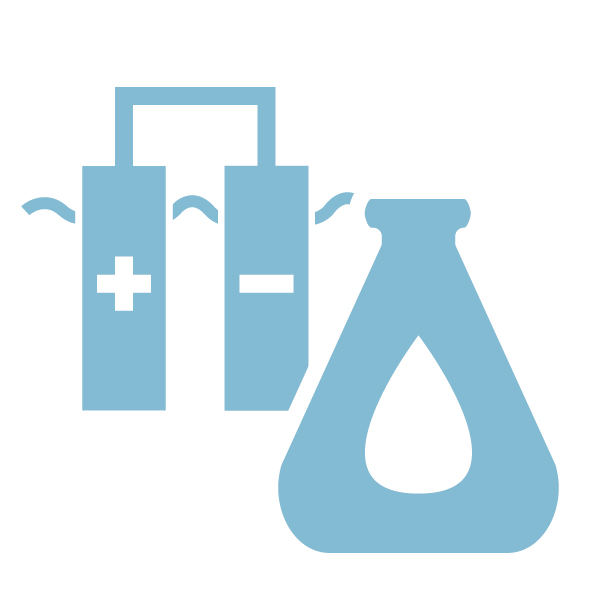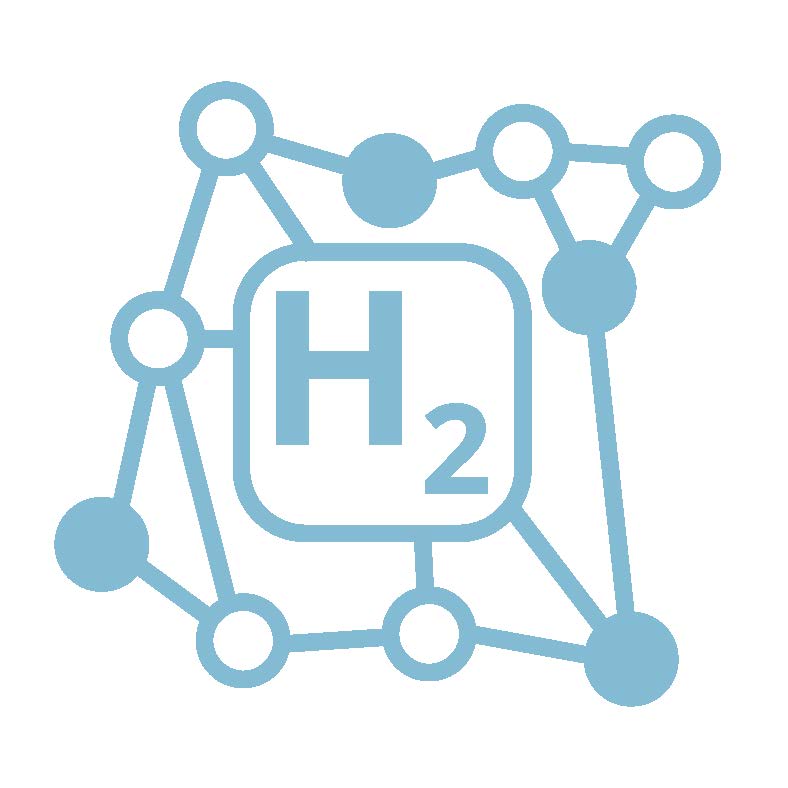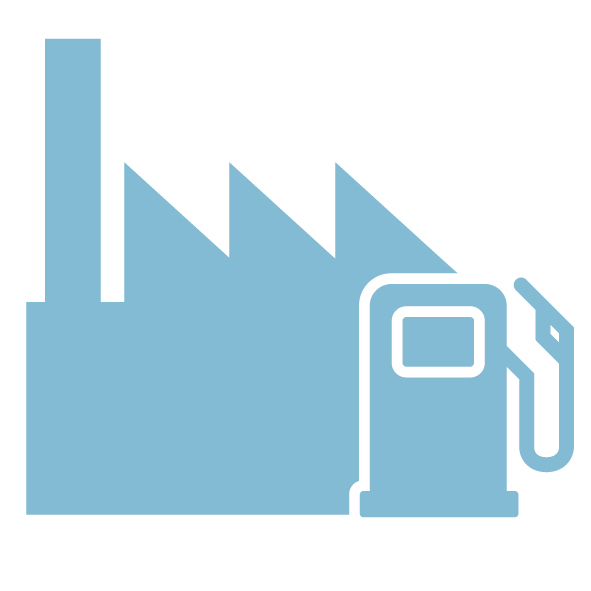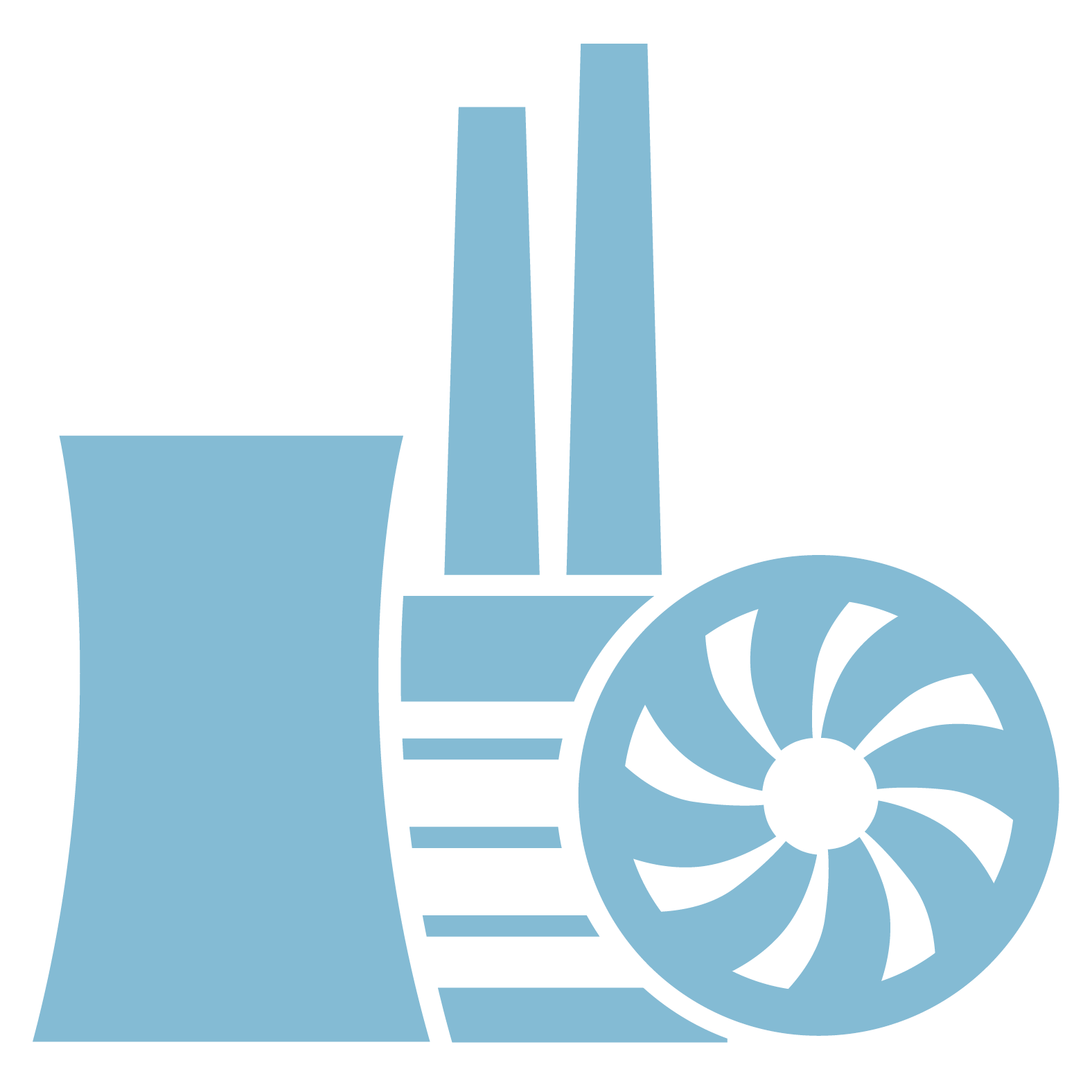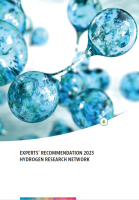Hydrogen Research Network

In the Hydrogen Research Network, experts from industry, universities and research institutes exchange ideas on production, storage, distribution and cross-sectoral use of hydrogen. As an element of the German National Hydrogen Strategy, the research network provides suggestions for the research and application of hydrogen technologies along the entire value chain. With jointly developed recommendations and statements, it serves as an impetus for funding strategies around the topic of hydrogen.
With the National Hydrogen Strategy, the Federal Government has underlined the pivotal role of hydrogen for the energy transition. Hydrogen as a storage medium and energy carrier enables efficient sector coupling of the electricity, heat and transport sectors. In addition, hydrogen serves as a feedstock in refineries and the chemical industry and also as a possible substitute for coke in the steel production. It is thus another key element for the decarbonisation of the industrial, heat and transport sectors.
Hydrogen - energy carrier of the future
As an energy carrier of the future, hydrogen offers a diverse research and development field for companies and science institutions. In order to ensure the broadest possible exchange, these topics are discussed on a cross-sectoral basis.
The Hydrogen Research Network, which has its focus on application-oriented energy research and practical transfer, is funded within the framework of the 7th Energy Research Programme by the Federal Ministry for Economic Affairs and Climate Action (BMWK). Because of the interdepartmental significance of the topic, the Federal Ministries for Digital and Transport (BMDV) and Research, Technology and Space (BMFTR) are also involved. The new hydrogen research network offers experts a technology-neutral, interdisciplinary forum.
Making innovative technologies ready for the market
The members of the network develop recommendations for the future orientation of the Federal Government's innovation and research funding in the field of hydrogen technologies. The focus is on research and innovation, on demonstration projects to test the market readiness of already developed technologies, as well as on real laboratories close to the market to prepare and support their market introduction.
Since hydrogen research covers a very broad range of topics, the research network is divided into five clusters. The members of the clusters can exchange information among themselves and with other energy research networks. The clusters are open to all members of the research network: Everyone can participate in an in-depth technical discussion and in activities within the clusters.
In the cluster "Production of hydrogen and downstream products", the various technologies for producing low-CO2 hydrogen and hydrogen-based downstream products, such as fuels and chemical base materials, are analysed.
In the field of hydrogen, the focus is on the production of so-called "green hydrogen" using various water electrolysis processes with renewable energies. In the first working group (WG 1), these are alkaline electrolysis processes such as alkaline electrolysis with liquid electrolytes (AEL) and with anion exchange membranes (AEMEL), as well as seawater electrolysis; in WG 2, PEM electrolysis processes with a proton-conducting membrane (PEMEL); and in WG 3, high-temperature electrolysis processes with solid oxide cells (SOEL) and proton-conducting ceramic cells (PCCEL). WG 4 is also looking at alternative photocatalytic, photobiological and solar thermochemical processes and WG 5 at processes for hydrogen production using biomass and biogenic residues (fermentation, reforming, gasification and plasmalysis). WG 6 is concerned with the low-CO2 production of "blue" hydrogen from fossil raw materials such as methane, in which the CO2 generated during production is captured and stored, or with "turquoise" hydrogen, which is produced by splitting methane (methane pyrolysis) and in which the carbon is then present in elementary and solid form.
In the area of downstream products, technologies for conversion into other hydrogen-based energy carriers are being investigated to increase storage and transport capability. WG 7 focusses on so-called platform chemicals such as methane, methanol, ammonia, olefins and ethers, which serve as basic materials for chemical and industrial applications. Synthetic paraffin, diesel and petrol fuels, which are referred to as SynFuels, E-Fuels or in aviation as Sustainable Aviation Fuels (SAF), is the topic of WG 8.
WG 9 will look at all aspects of optimising the supply of electrolysis systems for the production of hydrogen with electricity from renewable sources and their integration into the power grid beyond the grid operator.
Contact
Dr. Isabel Kundler
E-mail: isabel.kundler@dechema.de
Website: Dechema
Dr. Tom Smolinka
E-mail: tom.smolinka@ise.fraunhofer.de
Website: Fraunhofer Institute for Solar Energy Systems
The "Infrastructures and System Integration" cluster focuses on the question of how hydrogen can be stored and distributed as cost-effectively, safely and environmentally friendly as possible. Considering that gas grids and storage, together with corresponding electricity infrastructures, represent the backbone of the entire energy system, this cluster also sheds light on the relevant transformation aspects at the overall system level in order to develop an optimised research strategy.
In most cases, the sites where hydrogen is produced are spatially distant from places where the hydrogen is used, such as industry or neighbourhoods. Production and use also take place independently of each other in terms of time. The quantities produced must therefore be stored and transported in order to make the hydrogen available on demand at the relevant user locations, while an optimal mutual system benefit between the different energy sectors must be ensured.
Contact
Prof. Dr. Carsten Agert
E-Mail: Carsten.Agert@dlr.de
Website: DLR Institut für Vernetzte Energiesysteme
Dr. Geert Tjarks
E-Mail: geert.tjarks@ewe.de
Website: EWE Hydrogen
Contact
Dr. Roland Barth
E-Mail: Roland.barth@itk-engineering.de
Website: ITK Engineering
Dr. Hans-Jörn Weddige
E-Mail: hans-joern.weddige@thyssenkrupp.com
Website: thyssenkrupp Steel Europe
Some focal topics along the hydrogen value chain cannot be assigned to production, infrastructure, or utilization, as they play an important role in all these areas. Cluster 4 brings these topics together, providing the opportunity to deepen cross-cutting technical issues and integrate them into the Hydrogen Research Network.
A key cross-cutting issue is the safety of hydrogen technologies, essential for the rapid and successful establishment of hydrogen as an energy carrier. Safety aspects primarily concern components and systems, including their intended and unintended operations, as well as safety management across all areas of the hydrogen value chain.
Ensuring safe hydrogen technologies is a prerequisite for societal acceptance at various stakeholder levels. To support further societal discourse and informed opinion-making processes, it is necessary to transfer current research results to the public. Besides general science communication on hydrogen, risk-related communication strategies and addressing perceptions of fairness are particularly relevant.
Standards and worldwide quality standards define terminology, interfaces, safety, system, and quality requirements, as well as testing and certification foundations. Together with the legal framework, they form the basis for the successful national, European, and international market ramp-up of hydrogen. Therefore, the development of a national standardization roadmap has been demanded within the research network. A collaborative project funded by BMWK, "Standardization Roadmap Hydrogen Technologies," was launched in January 2024. By the end of 2025, standardization needs will be identified and corresponding activities initiated.
To ensure the private sector supports the transformation and makes the necessary investments for the hydrogen market ramp-up, an appropriate framework must be created to allow business models around hydrogen to emerge. Comparative policy analyses in EU states, analyses of willingness to pay, cost developments, incentive systems, and various regulatory issues are conducted to identify economically attractive business models and dynamic market areas in the short, medium, and long term. As sustainability is the central driver of the hydrogen economy, all production pathways will be examined regarding their greenhouse gas emissions and other environmental impacts (LCA), and related methodologies will be harmonized and further developed. Holistic sustainability analyses of imports from emerging and developing countries will be conducted, considering socio-economic and societal aspects beyond environmental evaluation. Additionally, Cluster 4 aims to better understand the climate impact of hydrogen emissions, quantify, and minimize hydrogen emissions.
To address the entire value chain, project formats modeled after the energy transition real-world laboratories are created, contributing to the achievement of research and development goals through targeted funding. Circular economy aspects and transdisciplinary approaches are particularly considered, and the training and education of skilled workers, the involvement of citizens, and the establishment of open databases are prioritized
Contact
Dr. Kai Holtappels
E-mail: kai.holtappels@bam.de
Website: Federal Institute for Materials Research and Testing (BAM)
Dr. Simon Pichlmaier
E-mail: SPichlmaier@FFE.DE
Website: FfE Research Centre for Energy Economics
As part of the reorganization under the 8th Energy Research Program, parts and aspects of the dissolved research network "Flexible Energy Conversion" have been integrated into Cluster 5 of the Hydrogen Network.
Currently, there are two working groups (WG) within this cluster:
WG Power Plants
The WG Power Plants focuses on both traditional power plant processes and other energy and material conversion processes, along with the associated possibilities for energy storage. This includes the use of pure hydrogen, its derivatives, and the potential for optional energetic and material use.
Key topics of the group include:
- Power Plant Processes: Flexibility regarding increased volatility due to renewable energy in electricity generation, efficiency, and process availability.
- Fuel Flexibility: Use of multiple fuels, operational capability up to 100 % hydrogen.
- Emission Reduction: Adapting to new fuels.
- Power Conversion + Synthesis (Chemical Storage): Hydrogen as a technology driver.
- Circular Economy: Thermochemical conversion (gasification, pyrolysis) of biomass and residual/waste materials for subsequent synthesis or hydrogen production.
- System Integration of Multiple Energy Conversion Systems
WG Turbomachinery
This working group addresses the use of turbomachinery in the context of hydrogen and hydrogen derivatives, as well as their systemic integration.
Major topics include:
- Hydrogen Applications in Turbomachinery
- Further Development of Turbomachinery in Energy Storage
- Turbomachinery in Power-to-X (-to-Power) Systems
- Compressor Systems for Future H2 Networks
- Flexibility of Turbomachinery in Energy Systems
- Digitalization of Turbomachinery Operations
- Development of Digital Methods for Optimization Support of Turbomachinery
- Turbomachinery for CO2-Neutral Fuels
Both working groups are open to new members and additional topics related to the working groups. Our goal is also to exchange ideas with other clusters within the network.
Contact
Prof. Dr.-Ing. Bernd Epple
E-Mail: bernd.epple@est.tu-darmstadt.de
Website: TU Darmstadt - Fachgebiet Energiesysteme und Energietechnik
Dr. Eva Verena Klapdor (currently represented by Dr. Benjamin Witzel)
E-Mail: eva.klapdor@siemens-energy.com (benjamin.witzel@siemens-energy.com)
Website: Siemens Energy Global GmbH & Co. KG


